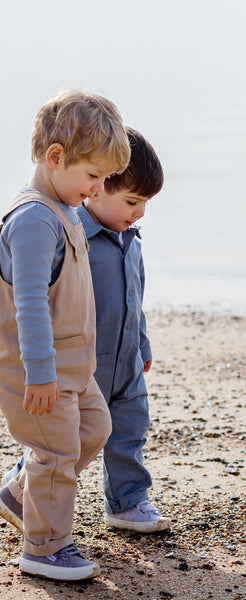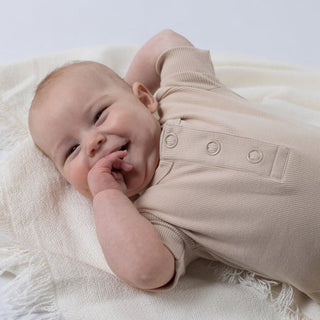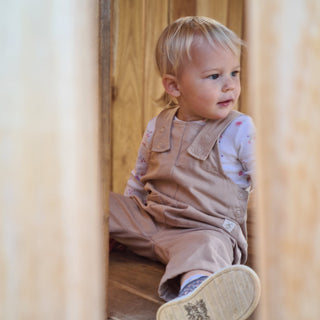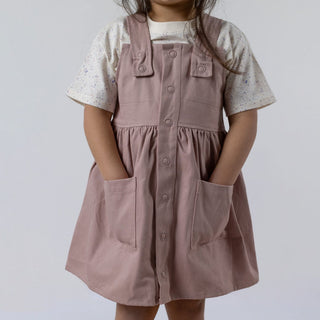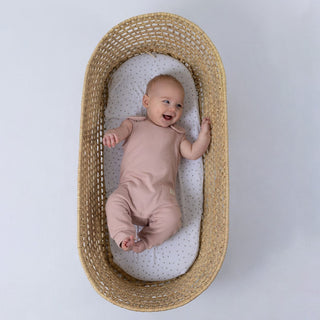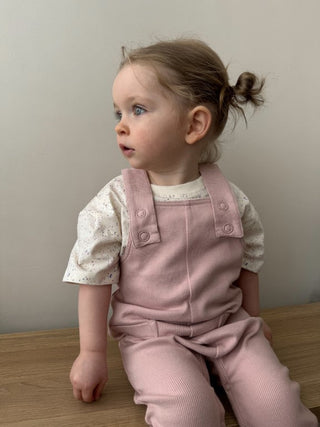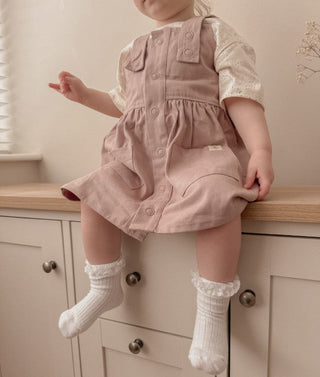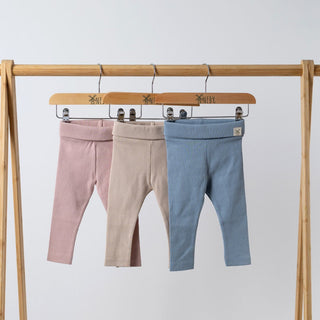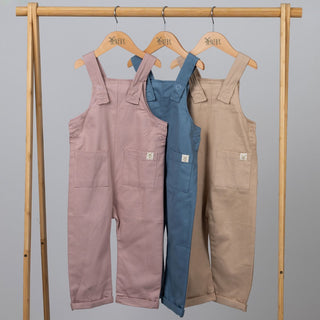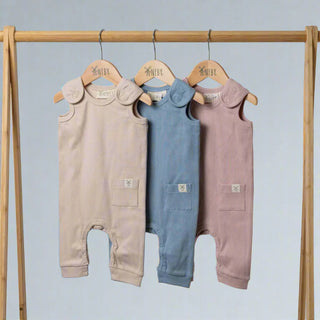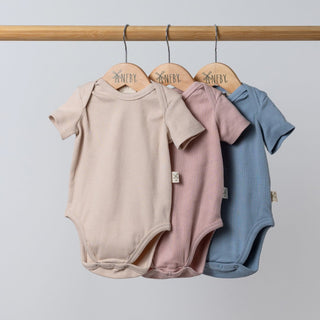Introduction
Here at Aneby, we know parents are always looking for ways in which they can make better decisions for the little people in their life. With the soaring popularity of organic children's clothing (and adults!), the benefits are becoming more widely known, and this is helping parents to make more informed decisions.
When a parent chooses to purchase organic baby clothes, it is a decision that benefits the farming industry right through to the children wearing them. There will naturally be a higher cost than fast fashion alternatives that use standard materials (we will come onto this), but we believe this choice represents the values you wish to instil in your child.
The fabrics on your baby's clothes will have a direct impact on their sensitive skin. Whether that be a soft jumper, a pair of snug leggings, or a cute ribbed beanie, it is our belief that harsh chemicals should be avoided where possible.
In this blog, we will explore the components of organic baby clothes, the key benefits, and the independent brands that we believe are doing a fantastic job.
What Are Baby Clothes Made Of?
The main difference between organic and non-organic baby clothing is the harmful pesticides, synthetic fertilisers and other unnecessary chemicals used in standard production. It is similar to the foods we eat, with cheap low quality alternatives being produced with quantity, and not quality in mind.
Non-toxic and organic fabrics are typically certified by GOTS, which is the global organic textile standard. The drawback is that this certification comes at a higher cost than standard fabrics. But with the growing demand for children's organic clothing, we are starting to see this price premium decline, which is making it more affordable for businesses and consumers alike.
But for us as a brand, we take great satisfaction knowing our products are free from harmful dyes, bleaches, and other harmful practices. Baby clothes made from organic materials, in our opinion, are softer, more durable, and longer lasting!
Benefits of Organic Childrenswear
-
Gentler for Sensitive Skin
Babies in particular are susceptible to rashes and skin irritations due to their sensitivities. If your little one is struggling, it might be worth considering organic baby clothes. -
Environmentally Friendly
Organic farming uses significantly less water and avoids the toxic pesticides we mentioned above. It’s also less harmful to the environment and encourages more sustainable farming, which is a win-win. -
Strong and Long-lasting
From our experience, we find organic GOTS garments to be more sturdy and long-lasting. There is nothing worse than purchasing a new product that only survives a few washes. -
Ethical Production
If you've wondered how high street retailers can sell garments at ridiculously low prices, it is because they are paying next to nothing for huge quantities. Here at Aneby, we know the GOTS fabrics that we use will help drive fair wages and ensure safer working conditions. -
Affordable and Fashionable Choices
The use of organic fabrics for baby clothes is more common within the smaller independent community. This means you can find unique and trendy designs that incorporate all of the above.
Top Retailers of Eco-Friendly Children’s Clothing in the UK
When it comes to buying organic baby clothes, the UK is home to some great brands.
- Little Green Radicals: There are many different collections and a huge catalogue of products, but we recommend checking out the Rainbow Balloon, Frill Dress which is an absolute stunner!
- Organic Zoo: The Gingham and Oliver Garden collections are a must see; they are beautifully made and feature some gorgeous designs.
- Aneby: If you like neutral tones and bespoke designs, have a quick look at our cotton twill collection. We pride ourselves on producing organic garments at a much lower price than our competitors.
Conclusion
Here at Aneby, we believe organic childrenswear is a fantastic choice for parents who care about the environment, the working conditions of farmers (and factory workers), and the well-being of their little ones.
Parents should consider organic baby clothes if their children struggle with skin irritations and other sensitivities due to the harsh chemical processing of standard non-GOTS fabrics.


